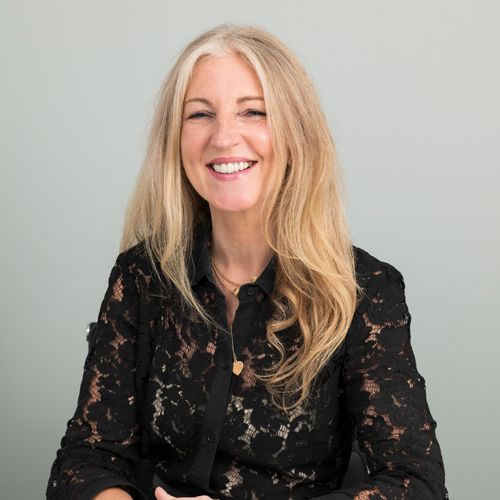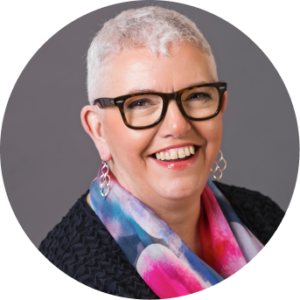Podcast: Play in new window | Download

Today we are celebrating International Women’s Day by interviewing Lynn Sedgwick, the MD and owner of the Clayton Recruitment group.
In this candid interview, Lynn shares her inspiring story, including her short-lived accountancy career, studying for her postgrad qualification, becoming a successful corporate recruiter, building multiple high-performing desks, and owning and scaling Clayton into two recruitment teams of over twenty-five billers.
Along the way, we hear about the importance of self-development and outside help and Lynn’s eight lessons on successful scaling she has learned throughout this time.
You can read the full transcription of the podcast below.
Sharon: Hi, Lynn. It’s an absolute pleasure to have you on the podcast today as we celebrate International Women’s Day.
Thank you for taking the time to share your story and journey with me. I think our listeners will be interested to hear about your recruitment journey over 30 years
Lynn: Indeed, thank you for having me. The expression is a recruitment life, I think.
How Did You Come To Work In Recruitment and Join Clayton?
Sharon: First of all, I guess it would be really helpful to know how you came to work in recruitment and join Clayton?
Lynn: I was a graduate in the ’80s. In those days, you got a new role as a trainee. For me, I started as a trainee accountant, and my goodness, I was in the wrong position. I ended up working insolvency and quickly realised that taking people’s wedding rings off them and double-entry bookkeeping was not the job for me.
Then like many people, I saw an advert for a recruitment consultant position. It sounded exciting, varied, and challenging.
What I particularly liked about it was the idea of being successful based on your efforts and having that work ethic from an early age; I thought I would go and explore the option, and it happened to be with an accountancy recruiter. I went in to register, and the guys saw something in me as well, and I got the job straight away; That was with Hays back in the ’80s.
Sharon: Oh, back in the day, right?
Lynn: Yes, so I started with them as a graduate and worked for a couple of corporates. I did fall into it. It is everything I thought it would be.
Sharon: I guess even though you fell into it, it was with a sector that you were familiar with as an accountant?
Lynn: I knew that they were recruiting, and as an accountancy trainee, I had not appreciated that I would be an ideal fit. Yes, having that experience in the niche helped me recruit accountants and professionals in those early days. It was super helpful to come from that background. Yes.
Sharon: What was the catalyst then to transition into joining Clayton Recruitment as the company was called then?
Tell Us About and Your Clayton Journey and Your Postgraduate Qualification?
Lynn: Yes, well, as a graduate, I had wanted to stay on and do a postgraduate, but I came from a background where that was not possible. I had to get a job. I always felt that even though I was successful with two corporates, I wanted to go back and study for a professional qualification.
I joined Clayton initially, and I said, “Look, I’ll set up a niche, financial recruitment desk, I’ll stay for a short while. Then I am going to go off and do other things,” which is what I did. I left for about four years and got myself a postgrad.
I became a social worker, helping people.
Sharon: That is different.
Lynn: It was, and then I realised that the public sector and social work were not for me. Having the professional qualification mentally, I got the tick, so I felt I had done what I needed to do. After setting up a financial recruitment division for them, I went back to Clayton, the company that I had left four years earlier.
Now, not having a specific desk, I thought, “Right. I’m going to set up a legal brand,” and that’s what I did. In 1999 and 23 years later, we are a brand leader in the sector, placing legal professionals in law firms across the UK.
How Did You Set Up Clayton Legal?
Sharon: Yes, so you were the instigator when you went back to Clayton then to set up the whole legal division of the business?
Lynn: Yes. Well, I progressed in my managerial and recruitment capability with two corporates. Then took that interim role to set up and troubleshoot and help this one-person band scale.
My strengths were in business development and being at the coal face. As your readers and listeners will know, when you are small, you are doing everything, so you are business development, servicing, and doing all the marketing.
I knew I had those skills, so I came back on the basis that I would set up a new business and take ownership of it. Well, 25% of it initially, and build on that experience that I had had. I think I did not appreciate how entrepreneurial I was at that stage. I was still in my twenties and just wanted to be a success.
What Were The Challenges As You Grew Clayton Legal?
Sharon: At that point, what were some of the challenges as you were building and growing the legal side of the business, which was your ‘baby’, I guess, and your responsibility?
Lynn: It is an interesting way of putting it because that is exactly how it felt. Literally, there was nothing, so it was starting from stage one, but I enjoyed that and the big picture, the details and wearing all those hats. We began in 1999, and then five years, and ten years flew very quickly.
It was very much a lifestyle business at that stage. We operated regionally only, and I had a business partner and myself, and my role was recruiting, training, servicing recruitment, running a busy recruitment desk.
Wearing all the hats with my business partner, who was the business’s accountant. It was a small business, but a lifestyle business because life happens simultaneously, children come along, so balancing those two things occupied the first ten years.
Then building a real brand regionally, and when I came into legal recruitment, there were no other legal recruiters around. We were the only people doing it. It was quite common in the accountancy profession but not in legal. The role was to educate our clients about serving, improving business performance, and time efficiency, saving them time and money. I enjoyed that.
It was educating and nurturing a new market. Business development was my lead. That is what I brought to the table. Then over time, my business partner became older and wanted to retire, so the opportunity presented itself to buy the remaining shares.
That was in the early 2000s. I thought long and hard about it; my children had grown up a little bit. They were at high school at that point.
I decided to take on the business and buy the remaining shares, with a definite plan and vision to grow from a regional to a national player.
You only want to buy a business if you can grow it, so that was the intention, the vision, at that time, to grow nationally and scale.
Sharon: Picking up on that, on your vision about growth. I know you are enthusiastic about growth. I understand from a business and a development point of view as well. You are also passionate and committed, in my experience, in terms of investing. The things you decided to invest in as part of that scaling were moving the business away from regional to something much bigger.
Investing and Growth: What is Your Advice?
Lynn: My three keywords and business strategy have always been; people, product, and process. People are your key asset, and investing in recruitment was part of that. During those initial stages, very much organic growth, so promoting from within. Then investment in products, so having the best products. What do I mean by that? Everything from IT to the entire range of business IT which runs a business.
Then also processes, and so what do I mean by processes? Everything across the business, every aspect of what you do, has a process behind it.
I was a recruitment expert, but there were other areas within the business that I needed to go out and find that expertise in the market. We did not have it in-house.
As I bought the company and started to grow, you are wearing multiple hats on a bigger scale. And there comes the point when you have over twenty people, you can’t run the business on your own; you need to bring in a management tier and specific skills; and initially, we went out to get those skills.
That was training and marketing to be able to scale.
First of all, coming back to training, I always felt that I was also a marketer in terms of marketing as a business developer.
Specifically, what I mean is I worked in sales and marketing. I was selling the service, but I was also marketing why Clayton. I also knew that marketing methodologies underpinned business growth, and I did not have all the expertise I needed in this area.
Initially, it was trial and error. Of course, that is the right thing to do, but it needs to be applied in a logical process and format.
Seeking marketing expertise, firstly, external was an absolutely crucial part of understanding those fundamental marketing tools. I invested absolutely from day one of taking the business over into setting up a marketing department.
Initially, one team member is now three, but also in the tools that drive marketing. Whether that be automation or content, or whatever that may be to drive the nurturing of that new business, that has been an enormous success, and we have continued to invest. Everything from shop windows and websites; we are about to launch two new websites.
SEO, content marketing, and the brand process are part of the marketing approach that cycles around and continually develops.
We are just about to rebrand and relaunch our Clayton brands that have been cyclical, and as we’ve grown and scaled, that’s become even more critical.
Sharon: When we first met four years ago, you had just launched your then-new rebrand?
Lynn: Yes, everything from a marketing perspective has been a learning curve. Even that. As I am chatting today, our public face is about to change, but having the expertise in-house, we did not have the expertise in-house, and getting that right was important.
The reason we are doing it again is it needs revamping and modernising. Yes, I think being aware of your strengths and areas where you have no expertise is key when scaling.
It is certainly being self-aware, and then going out and bridging those gaps in your knowledge and expertise is crucial.
How Have You Navigated The Last Challenging Few Years?
Sharon: Thinking in recent times, I guess it would not make sense to have this conversation and not recognise that we have had a challenging couple of years. It would be interesting to hear about your experience as a business leader that you have been investing in, growing, and scaling. How did you navigate such challenging times?
Lynn: Yes. For everybody, I am sure yourself included and all your listeners, but a crisis brings out real resilience and the opportunity to use the tools you have at your disposal.
For me, it was a real awakening.
Although I always said, “I’ve been through three recessions, and we’ve done well,” this was different, wasn’t it?
It was all bets are off. Knowing how to, I do not like the word pivot, but know what to do in those situations. We were alone. As business leaders, we were alone. It was a definite feeling I can still tap into.
What you do is dig deep, and the internal resources I found was resourcefulness, so how to be resourceful and use the associates that I had.
I invested in some strategic support at that time in those early weeks. That did confirm that what I was feeling and thinking, I was on the right track.
It also gave me some new tools, and to focus, in those early days, to focus energy and effort. That was helpful, and very quickly, I identified what needed to change because what you thought was one thing was not, and so you had to– I will use the word pivot but get rid of the things that did not serve you anymore and built on the things that did. That was my biggest insight.
It was that feeling when I initially set the business up about one vision, having a set of goals, no fear, inner resilience, being single-minded. Those traits came to the fore but were coupled this time with strategic input. We were fortunate to get a bit of funding for some strategic input.
Sharon: I remember we talked about that.
Lynn: Yes, and this idea about taking us from where we were to be world-class just fed into my vision for the business. That was a platform, but I think like everybody through COVID, and I remember it very well now, although it was 2020 and 2021. It was 2020 that allowed me to shake things up for us. I mentioned before that people, product and process, and marketing have been a big part of business development, but people are your most valuable asset.
When you grow organically, which I had done, you promote from within, which is fantastic and empowers your team, which is amazing, but there are still skill gaps that have to be filled.
It was a time of growth as a leader because it did develop your leadership skills in a way that the previous recessions had not. I have always been a decision-maker but have been scared to make decisions, but I learned to make more informed choices.
What Has Been Your Experience As A Female Leader in The Industry?
Sharon: You were talking there about leadership. I am just curious. In the recruitment industry, for over 29 years, as you have been describing that you have been in the industry with a small gap, what has been your experience as a female leader?
Lynn: An interesting one. I have thought a lot about this over the years, and I came into the industry in the late ’80s, ’90s when it was that era. Shops, suits, and shoulder pads. Being a woman, I think, was not celebrated in the way it is today.
You had to compete and compete like a man with masculine qualities. You had to compete to succeed, and I was all about being successful. That persona, I think, was the persona that I had to build my career, and it worked. I was super successful working in a corporate setting.
But when I became a business leader, as in an owner-manager, that persona, in some ways, had to change. I learned to wear different hats and different personas. It was not just one persona, let us say, of the whole person. I became an all-around leader by wearing different hats and feeling compassion.
I had not drawn on all those traits in my earlier career.
Your question about the challenges of being a woman in a leadership role, the obvious ones, I think, was in my thirties. Balancing family and children with career-building and building a business. Then also, managing as well.
That was a challenge, and managing diverse types of people, often people, brought something different to the table, but I have not ever felt that I have been disadvantaged or hit any ceilings in my recruitment career.
As a leader, I am all about empowering the whole team to ensure everybody has a career goal and a career path within the business. That may be professional qualifications or career development in terms of promotion or not quite being in the right role but finding the right role and supporting the whole team but women particularly, that have had this similar journey as I had. It is a challenge and continues to be so. I have never felt that being a woman in recruitment has been negative.
Sharon: Good.
Lynn: Although I am sure it may be perceived as that by others, for me, it has been an actual superpower to be a woman in the recruitment industry.
What Was Your Journey Over The Last Few Years The Has Instigated The Strategic and Personal Changes You Are Making?
Sharon: Going back then to what you were describing in terms of seeing 2020 as an opportunity, making some changes; How were you able to build on that, in terms of your success, and how things evolved in 2021?
Because I know from our conversations, recently you’ve made some big strategic decisions for the next step of the growth of the business and yourself, personally. I am curious about what has been that journey in 2021 that has led you to where you are today?
Lynn: Like many business owners of SME recruitment teams, that is. You look at the quantity of SME recruitment businesses out there, and the majority have less than a £5m turnover; unless you are looking at corporates.
I am in my fifties now, and you think about the future differently when you hit fifty. Where I had held onto structures and people, the COVID opportunity to make changes did focus my mind on the future goals, and looking forward three, five years, where do we want to be as a business?
Rather than operating less strategically and just year-to-year, really setting longer-term goals, not only financial goals for the business but also business goals behind that.
Then mapping out how we would get there with key points along the way. That has been a huge change in how I have operated.
What I decided to do was to go up in terms of the seniority of the senior leadership team and bring in expertise in marketing, training, operations, finance, and working as a senior leadership team to deliver a more strategic business plan rather than spinning plates and not employing an executive board; having an executive board now has helped.
Sharon: What has that meant in terms of creating your future? Because you touched on the fact that you think differently when you hit fifty, with which I can associate. What has that meant for yourself regarding what you are reaping as the rewards? I do not mean financially, but in terms of your time in the business, your contribution to the business, and what it means for you personally outside of Clayton.
Lynn: Mindset has been huge. Business coaching has been a huge part of my investment in me and, ultimately, the impact on the business too. I had always felt it was a luxury previously to do that. Having a business coach has been invaluable along with a senior leadership team, and to keep on track, stay focused on what that vision is because the day-to-day can take over, can’t it? As we all know.
Sharon: Completely, yes.
Lynn: Mindset and mind shift. What has that allowed me to do? Well, first of all, it has given me: Oh, my goodness me.
It is stopped the sleepless nights. It has taken away overwhelm.
It has given me a supportive working environment that I did not have before. We have built a team now, and we have redefined our vision, our values behind that, and we have a successful performing team that are all bought into this one vision.
Although, I have felt that I had that before, and that is what I was aspiring to.
I did not. We were just growing slowly.
We could not get past that size of thirty employees. Yet now, it is a real platform, and people, products, and processes are in place now to scale, and it has allowed me to now take a step back.
I still have a bunch of projects in which I am involved. Yet now, I can also be involved in other things outside of the business. New ventures, new projects, which is exciting.
What Are Some of Your Lessons On Your Recruitment Journey?
Sharon: Brilliant. What would you say are some of your lessons from your experiences and your journey over the years?
Lynn: I have written a few down because I did not want to miss anything out; there are so many lessons I want to share. I have got eight in total.
Take risks and chances. I bought a building in the last financial recession without any security. It was a risk, and it was an opportunity simultaneously, and that was a big significant change as well. When those opportunities knock at your door, take them. Take risk. Do not be scared even if you make a wrong decision; it is not bad. It is a learning opportunity.
Surround yourself with positive people. Do not allow yourself to move away from your vision. That is important. Negative people in business aren’t useful. The expression is mood hoovers; Mood hoovers in the business are not so great. That is not to say you have not got to have diverse voices.
Stick to the vision; it is your vision, get your team behind you. Do not waste time on people, investing in people, products, and processes; if it is not right, if it does not fit, you are not serving those individuals by keeping a hold of them, and equally, they are not serving the business.
Make decisive choices. That can be difficult. That has been my challenge. Recruit and promote the absolute best. Here we are, we are a recruitment business, we say this to clients all the time, “We can recruit the best for you, the best talent,” and it is true, surround yourself with the absolute best that you can afford.
Invest in the best people you can. When you are small and growing, that’s not always easy because budgets limit you, but do get the absolute best, make sure you have robust recruitment processes, recruit in line with the business’s values, and take time to recruit the right people.
Focus on your self-development. My last one was about self-development. It took me many years to invest in myself; I was spinning plates on a hamster wheel, going faster and faster and faster. Business coaching, you must have the support of a business coach, and I have been fortunate to have two brilliant business coaches.
Invest in your training, as well as that of your team. We have a department. That has been important in our development. Invest in yourself as well. I think as entrepreneurs, you are constantly looking for new opportunities. I see myself as a captain of a ship looking out for opportunities and obstacles, but do not forget to look after yourself; it is really important.
Mindset is really important. I cannot stress that enough.
Surround yourself with the best recruitment partners, whether that’s marketing, like you guys at Superfast Recruitment or outside external associates, do the research and surround yourself with the best; it will save you buying years and years and years of expertise. Do not look at the cost; look at the gain. Those are my words of wisdom.
Sharon: Fantastic. That is great. Where can people find out about Clayton Recruitment and Clayton Legal?
Lynn: We’ve got a website, Clayton-legal.co.uk. Our recruitment brand is a commercial, regional brand, and our legal brand is national and soon to be international, which is exciting.
Sharon: Exciting that is another conversation for another day.
Lynn: It definitely is. Yes, absolutely. Happy to add anybody listening or reading this; if they would like to contact me directly, then by all means, LinkedIn is ideal.
With all the experience, I am happy to offer any words of wisdom or mentor anybody in a particular area if that is a pickup conversation, so feel free to get in touch.
Sharon: That’s brilliant. Thank you for extending that invitation. I am sure you will get some people taking you up on that. Thank you for your time. It has been great. We have known each other for several years now, and I have learned some things I had not realised tonight. I am glad we have had a chance to have this conversation. Thank you so much, Lynn.
More About The Clayton Group
Clayton Recruitment has been recruiting on behalf of businesses across the Northwest since 1989, placing upwards of five thousand professionals into exciting new careers. Our 30-year record of success has enabled us to develop trusted relationships with many of the North West’s reputable businesses.
Clayton Legal have been partnering with law firms since 1999 to find, recruit, place and uncover the brightest legal talent in the UK into exciting new careers.
Our 20-year record of success has enabled us to develop trusted relationships with many of the UK’s law firms, including
How We Can Help
We have many clients who are on for their best quarter because they implement what we teach and utilise the content and campaigns we give them.
Book your call and demonstration here if you want a quick chat to see how Superfast Circle can work for you too.
Thanks
Denise
P.S. If you want to join Superfast Circle and would like to find out more, speak to us here.






